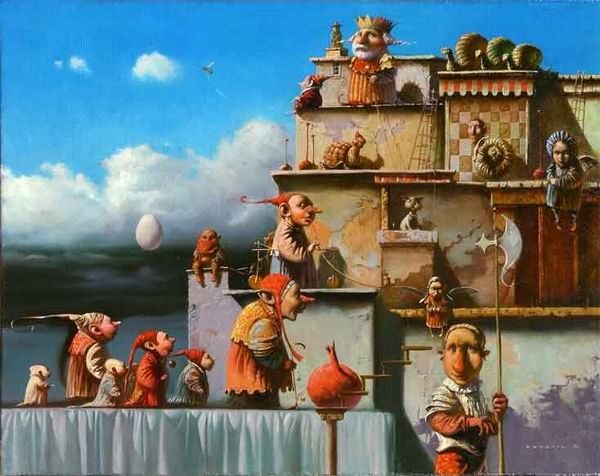
The Holy Grail of Chess Improvement
What is the Fundamental Key to Improving in Chess?
Many hundreds of thousands of words have been spilt on the subject of how to improve in chess. Today I am going to put in my 2¢ worth about it.
Hope you don't mind my switching between different subjects. Sunday it was on Ulf Andersson, yesterday it was the Chess Potpourri from Switzerland, and today it is about how you could progress faster in chess.
Most of what you have heard about improvement pretty much revolves around accumulating knowledge. That is the term GM Alex Čolović @alexcolovic uses. Players typically extend their knowledge of "openings, middlegame, endgame, they know what a best line is in a certain variation, they know what Carlsen played in his last game, generally they know a lot." (GMAČ)

.
The other type of study, Čolović argues, is neglected and it is chess skills. Without it, knowledge renders useless. To increase the level of chess skills, Čolović gives the following areas to practice,
(a) calculating variations,
(b) devising plans,
(c) realization of advantage,
(d) revising your opening repertoire (sic).
To highlight its importance, Čolović makes a heading Calculation is the Key in the author's text on Chessable.
A Bugle Call for Sleepy Ears of GM Čolović et al.
The above, and similar opinions to GM Čolović is exactly why I decided to write this blog and give an entirely opposite view from it. An antithesis to a well-entrenched view of GM Čolović and many other GMs, experts, and pundits on the subject of improvement in chess, who all advocate pretty much the same method. And missing something very important and critical on the way.
Before going on any further we have to state a simple truth on how humans manage problem-solving and decision-making in general, something cognitive science can provide numerous proofs about.
For the purpose of this blog, I am going to paraphrase the American psychologist and Nobel Prize winner for his work on the psychology of judgement and decision-making, Daniel Kahneman. As per Kahneman, most of decisions we make are fast, effortless, rather automatic and instinctive. Period. It is only when we don't have an easy intuitive answer to the problem at hand that we start slow, deliberate analytical thinking by using reasoning and logic. In chess we call it calculation.
Therefore, there are two modes of thinking, (1) intuitive and (2) rational/intentional. The former takes place in the unconscious mind, while we are fully aware when the latter is in operation.
The cognitive science, psychology, neuroscience, they all agree that Intuitive Thinking (1), or Understanding as GM Vladimir Kramnik calls it, precedes and is superior over Calculation (2). (I touched this dichotomy before in Chess Lyricists vs Chess Physicists: Which One is in the Driver's Seat: Intuition or Calculation?)
Now back to the statement of GM Čolović above. What did he miss? Well, to be frank, not only him, but everybody else. All the echelons of Grandmasters and leading authorities for improvement.
Intuition!
Repeat Intuition!
This is DA KEY to your improvement in chess, folks. Therefore, first and foremost, Educate Your Intuition! Teach your ‘INner TUtor’ (the real meaning of the word intuition!).
Everything else is subordinate and depends on it. Your perception of position and its main features. How you judge/evaluate situation on the board. Working out a plan that is tailored to it. What lines to calculate to double-check whether the plan will work, etc. In blitz, your game is almost absolutely based on intuition, the unconscious accumulated experience informing judgement in real time.
Forget GM Čolović's "revising your opening repertoire." That is absolutely irrelevant from the point of view of the developing player and their real needs. It is the last and least important thing in the world a chess authority should advise you on. Maybe it is important for Grandmasters as they have acquired all other necessary skills, having already built strong and robust intuition, but for the rest of us, studying openings is just waste of time and effort that could be spent much more profitably in other areas for improvement (never mind his contradicting himself that is manifest when he first puts openings in chess knowledge, and then in chess skills).
So, what GM Čolović and other advisors for improvement obviously don’t see is that Calculation is NOT the key. Everything starts with Intuition. Intuition is the King.
In essence, they put the cart before the horse.
"I normally do what my intuition tells me to do. Most of the time spent thinking [=doing calculation — RP] is just to double-check." —Magnus Carlsen, the world chess champion
Next time, we will take a look at how to approach educating your intuition. Remember, your sixth sense, your instinct, your inner voice is an intangible thing, rooted somewhere deep in your subconsciousness!
How to get in touch with the intangible?!![]()
.
.
